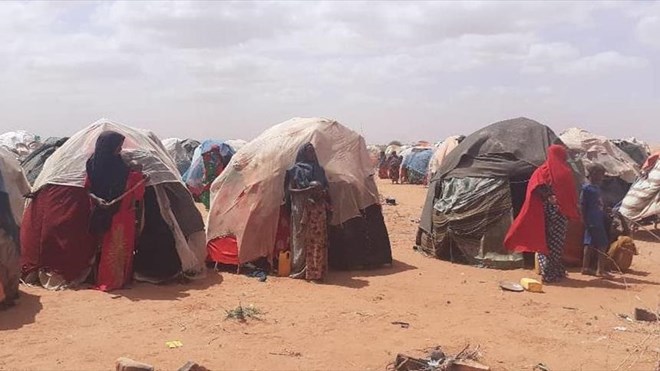
Andrew Wasike
Saturday October 8, 2022

Hundreds of thousands of people are at risk of dying of hunger, while more than 10 million children are facing acute malnutrition due to droughts and spiraling food insecurity in East Africa, the head of a regional bloc said on Friday.
The East African region is facing its longest dry spell in 40 years and the fourth drought in a decade, according to Workneh Gebeyehu, executive secretary of the Intergovernmental Authority on Development (IGAD).
IGAD, a regional group of East African countries, has eight members: Djibouti, Ethiopia, Somalia, Eritrea, Sudan, South Sudan, Kenya, and Uganda.
“Over 10 million children are suffering from acute malnutrition across six of our member states,” Gebeyehu said at a meeting in Kenya’s capital Nairobi that was attended by ministers from all IGAD members.
Representatives from Sweden, France, EU, the United States Agency for International Development, African Development Bank, and UN agencies were also present.
“Tremendously high rates of acute malnutrition continue to be recorded across the region, particularly in Ethiopia, Kenya, Somalia and Uganda, and especially among displaced populations,” he said.
Almost 13 million people are currently internally displaced in East Africa, while the region also has some 5 million refugees and asylum seekers, nearly all of whom are food insecure, according to IGAD data.
Gebeyehu said more than 51 million people in seven IGAD states – or almost 20% of the bloc’s population – are estimated to be highly food insecure, including nearly 388,000 people who are at risk of dying of hunger.
IGAD reports indicate southern and southeastern Ethiopia, parts of Kenya, and nearly all of Somalia is witnessing the worst drought in 40 years.
The situation could soon worsen as weather forecasts for the remainder of 2022 are no better, raising the possibility of a record fifth consecutive season of below-average rainfall in the region, according to IGAD.
The bloc urged regional governments to “identify root causes of food insecurity in order to formulate and execute context-specific and cost-effective solutions.”
IGAD member states must also enhance food and nutrition analysis capacity, early warning and systems, and shift toward climate-sensitive approaches to development, Gebeyehu added.